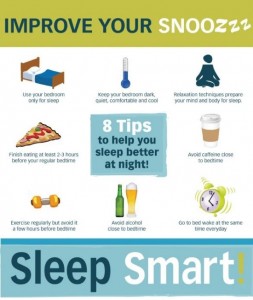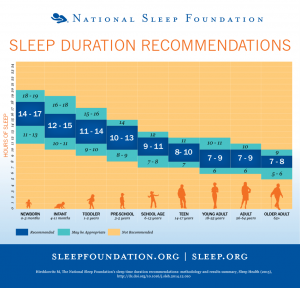Sleep well, be well
By Danielle Gagnier
A recent unscientific survey shows some people believe sleeping schedules are linked to a person’s mental and physical health.
There were 24 people who completed a survey for the St. Clair College MediaPlex on whether or not they believe the amount of sleep they get each night relates to their physical and/or mental health. More than 87 per cent of people said they wake up feeling tired instead of refreshed and feel they do not get enough sleep, which affects how they go about their daily life.
According to Healthysleep.med.harvard.edu, multiple studies have revealed people who sleep poorly are at greater risk for a number of diseases and health problems. Sleep deprivation can result in short and long term consequences such as lack of focus, fatigue, mood swings, diabetes, high blood pressure, obesity and heart disease, and may lead to a shortened life expectancy.
Healthysleep also indicates while sleeping well is no guarantee of good health, it does help to maintain many vital functions. One of the most important of these functions may be to help cells and tissues recover from the wear and tear of daily life. Major restorative functions in the body such as tissue repair, muscle growth and protein synthesis occur almost exclusively during sleep.
Kaitlyn Goehring, 18, a recent high school graduate, said she believes that her sleep schedule is affected by her school work and her current job, which influences both her mental and physical health.
“When I was in school, my sleep schedule affected everything because I would get five hours of sleep a night,” said Goehring. “I got home from school and went to work and would come home at 10 p.m. every night. That’s when I had to shower and start all of my homework so I would rarely finish my homework in order to get some sleep. This caused me to fall asleep
everyday in class”
Boston College posted a how to called “Improve Your Snoozzz” on their school’s website, giving tips on how to improve a sleeping schedule and how to sleep smart. These tips include using the bedroom only for sleep and finish eating at least two to three hours before your regular bedtime. It also recommended to exercise regularly, but avoid it a few hours before bedtime, avoid alcohol and caffeine close to bedtime, go to bed and wake up at the same time everyday and use relaxation techniques prepare your mind and body for sleep.
University of Windsor student, says her sleep schedule does not affect her health in any way.
“It doesn’t affect my health because I get enough sleep,” said Samantha Calvaruso, 18. “I also sleep when I don’t feel well, so if anything, it improves my health.”
The National Sleep Foundation recommends people between the ages of 18 to 65 get between seven to nine hours of sleep per night in order to get the proper amount of rest that your body needs.




